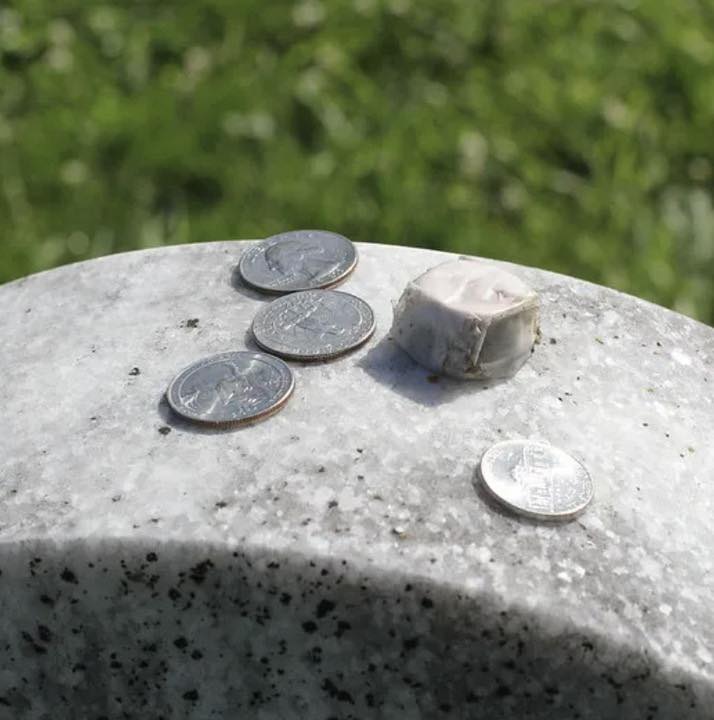Placing coins on gravestones has a history that is a little unclear. For example, some say that the tradition dates back to the Roman Empire. On the other hand, according to Snopes, “there’s no reason to believe that it does.” Because there is “a lack of documentation.” Either way, one thing stands true. Those who serve in the armed forces, and the people who love them, make sacrifices that most people can’t imagine.
Therefore, it’s not surprising that those who’ve served together would find a way to honor those who were lost along the way. Reportedly, the placement of coins on gravestones can be traced back to the Vietnam War. Placing coins on gravestones was seemingly safer for people to contact one another. “Due to the political divide in the country over the war, leaving a coin was seen as a more practical way to communicate that you had visited the grave than contacting the soldier’s family, which could devolve into an uncomfortable argument over politics relating to the war.” Explains a page on the American Legion Website.
Moreover, the tradition of leaving coins on gravestones also came about as a way for veterans to honor their “fallen comrades” or “buy them a beer.” Usurpingly, each coin symbolizes something different.
For example, a penny left, simply means someone was there. Meanwhile, a nickel has a slightly more sentimental meaning because it signifies the person who left the memento, and the deceased were in boot camp together.
Next, a dime signifies serving together, even if for only a short period of time before being transferred—lastly, a quarter, perhaps the most scared of all coins, on a gravestone. The quarter lets the deceased’s family know that whoever left the memento was actually present during the time of death.
Other Military and Monetary Traditions
Interestingly, placing coins on gravestones of those who’ve served in the military isn’t the only tradition relating to money or even “coins,” as challenge coins are also a beloved military tradition. While today there are themed and personalized coins available, they became a significant part of US military traditions in WW1. The tradition is meant to symbolize unity among those who’ve served. Although they hold sentimental value and represent something incredible, they hold no monetary value.
In contrast, there are many other traditions in which coins are used as a symbol of good luck, goodwill toward newlyweds, and for making wishes. Additionally, there have been reports throughout history of people being buried with their wealth. For example, Abraham Lincoln didn’t leave coins on his gravestone. Instead, he was reportedly buried with two-half dollars over his eyes.
Coins have been symbolic for numerous cultures and various reasons, as well as a symbol of status and good fortune. While it’s unclear if the symbolism of currency played any role in establishing the tradition of placing coins on gravestones, the tradition symbolizes a bond much deeper than most people can fathom. A way to let others know the sacrifices of those in the service and their families haven’t gone unnoticed.

Leave a Reply